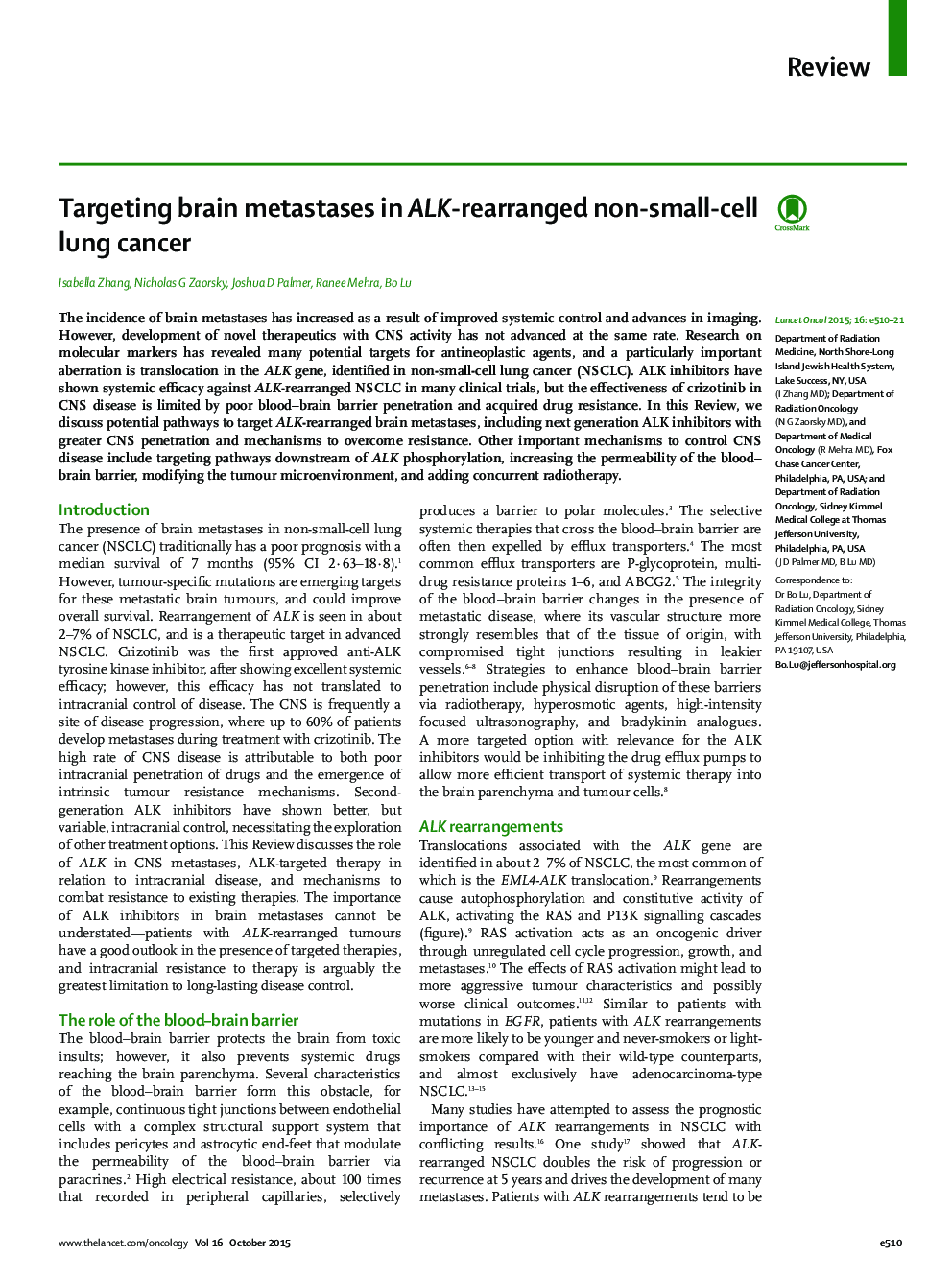| Article ID | Journal | Published Year | Pages | File Type |
|---|---|---|---|---|
| 3993639 | The Lancet Oncology | 2015 | 12 Pages |
SummaryThe incidence of brain metastases has increased as a result of improved systemic control and advances in imaging. However, development of novel therapeutics with CNS activity has not advanced at the same rate. Research on molecular markers has revealed many potential targets for antineoplastic agents, and a particularly important aberration is translocation in the ALK gene, identified in non-small-cell lung cancer (NSCLC). ALK inhibitors have shown systemic efficacy against ALK-rearranged NSCLC in many clinical trials, but the effectiveness of crizotinib in CNS disease is limited by poor blood–brain barrier penetration and acquired drug resistance. In this Review, we discuss potential pathways to target ALK-rearranged brain metastases, including next generation ALK inhibitors with greater CNS penetration and mechanisms to overcome resistance. Other important mechanisms to control CNS disease include targeting pathways downstream of ALK phosphorylation, increasing the permeability of the blood–brain barrier, modifying the tumour microenvironment, and adding concurrent radiotherapy.
